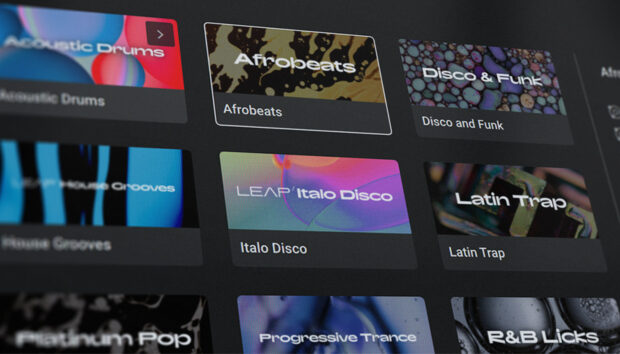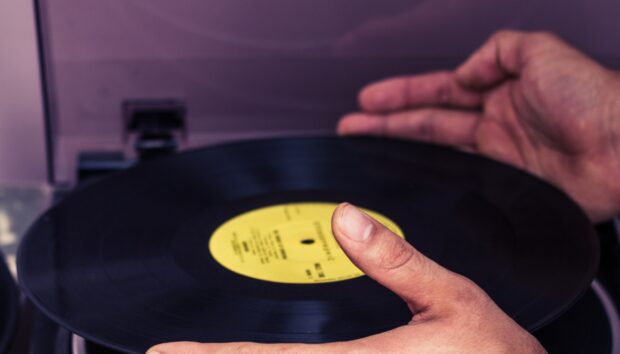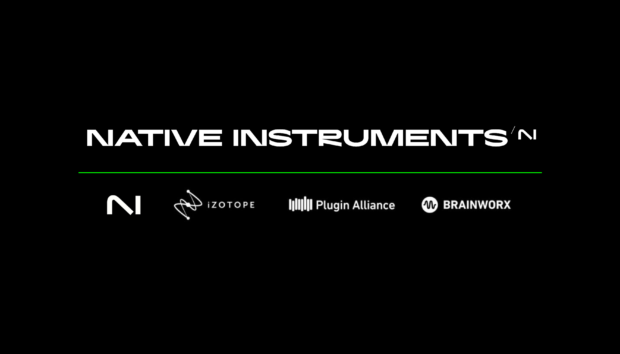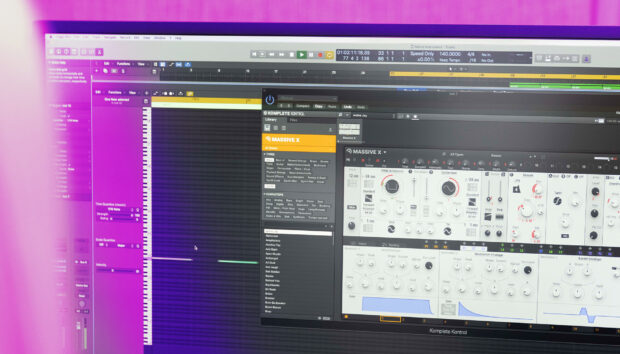
Have you ever asked yourself, “how do music artists make money?” You’re not alone. Venturing into the music realm with dreams of making it a full-time gig is a path many are vibing with these days. That dream certainly struck a chord with me when I was about 15. As soon as I started fiddling around in GarageBand, I knew I wanted music to pay my bills one day.
It took me a while to get there. Or, at least, a bit longer than I’d hoped! But on this journey, I’ve learned there are so many different ways for making a living out of your passion for music. And we’re going to take a look at 25 ways to make money with music.
Explore these ways to make money with music:
- Collect streaming royalties
- Offer mixing and mastering services
- Sell digital downloads
- Score local gigs
- Crowdfund your projects
- Teach music lessons
- Offer fan subscriptions
- Busk on the street
- Be a ghost producer
- Go on tour
- Offer recording services
- Sell your beats
- Write songs for other musicians
- Serve as a session musician
- Write for music blogs
- Create and sell loop/sample packs
- Monetize your YouTube channel
- Secure sync licensing
- Get corporate sponsors
- Do a live stream
- Create soundtrack music
- Sign a record deal
- Curate playlists
- Sell branded merchandise
- Apply for music grants
Can you make a living off music?
You can indeed make a living off of music. I’m proud to say I’ve been bringing home the bacon for the past 5 years or so – exclusively in the ways I’ll be sharing down below. But, a quick caveat: it does take a fair amount of dedication and discipline to turn your passion into profits you can actually live off of.
Before we jump into how to make money with your music, keep in mind that it’s not always gonna be about dropping killer tracks and waiting for the cash to roll in. You need to be willing to explore multiple avenues – live performances, merch sales, or even sharing your musical wisdom through teaching – in order to earn your keep. It’s not always glorious, but I can tell you it’s definitely worth it. And hey, with the digital age singing the praises of independent artists, the dream of making a living through music is more realistic than ever.
That being said, take a moment to seriously ask yourself if you’ve got the drive to make this happen for you and your life. If the answer’s a hard “YES!” then let’s keep this moving right along.
25 ways for making money with music
1. Collect streaming royalties
While the amount streaming services pay per stream is pretty small, the amounts can add up if you have a significant following or get a viral hit. Use a service like Amuse or DistroKid (which allows you to release your music on all major streaming services for free) and distribute your music on as many platforms as you can in order to increase your reach and your potential earnings.
This is a way of making money with your music passively, meaning you can still be earning royalties even while you’re sleeping or focusing on other projects.
2. Offer mixing and mastering services
If you’ve got the skills, offering mixing and mastering services is an excellent way for how to make money with music online. Platforms like SoundBetter or Fiverr are fantastic places to start offering your studio skills and finding clients. And, the beauty of this gig is that you can logistically work from anywhere as long as you’re traveling with the right tools. Plus, if you’ve got good mastering software like Ozone 11, it’ll do most of the heavy lifting for you, saving you time while making you money.
If you decide to go this route, I’d recommend putting together some different packages at different price points. And, make sure to include how many revisions you’ll allow for one project, otherwise you might experience “scope creep” – where clients demand revision after revision until you’re nearly bald from ripping all of your hair out.
3. Sell digital downloads
Selling digital downloads may seem like yesterday’s news, but there are still people willing to pay for high-quality audio files. Websites like Bandcamp allow you to set your price and offer a platform for you to sell your music to a broader audience. Upload your music, set a fair price, and promote your work across social media and relevant communities to attract an audience willing to purchase your downloads.
Consistent promotion and engaging with your audience will help increase sales and generate income from your digital offerings.
4. Book local gigs and concerts
To book gigs, you’ll first want to make friends with venue owners and event organizers in your area – they’re your ticket to getting on the ticket. Next, have a killer set that not only resonates with your audience but also keeps ‘em thirsty for more of your tunes.
Keep in mind, it’s better to play to a packed house (no matter how small) than to only halfway-pack the place. So if you’re just getting started, don’t be ashamed of playing the tiniest, dingiest venues in your town. Play those until you can sell them out – then aim for a bigger venue. Trust me, being able to say you sold out your last few shows is an impressive brag you can drop in the future when talking with new venue owners and event promoters.

Also, don’t shy away from passing the hat or setting up a Venmo QR code to get digital tips at your gigs. Your fans are there to support you, so let them! This game is all about creating multiple revenue streams from a single show.
Lastly, you don’t just have to stick with public events. If your music’s the right vibe for it, look into playing for corporate events or even weddings. With the right approach, the echo of your local gigs could reverberate into a steady stream of income. So, tune up, turn up, and take the local scene by storm.
5. Crowdfund your projects
Crowdfunding is more than just asking for money – it’s about building a community willing to invest in your art and your artistic journey. If you’ve got a killer idea for a music project you want to bring to life, offer exclusive content or experiences as incentives for people to contribute in order to make it happen.
Platforms like Kickstarter or Indiegogo can help you set this up, plus it’s a good exercise in learning how to market yourself effectively.
6. Teach music lessons
One reliable way to make money with music is by teaching. If your skills can truly help someone else become proficient, that’s something people are willing to pay for. Whether you cater to 11 year olds whose parents really want them to learn to play the cello because it “builds character,” or to the average Dad who wants to pick up DJing to round out his mid-life crisis, teaching other people how to do what you already do well can definitely bring in some extra money.
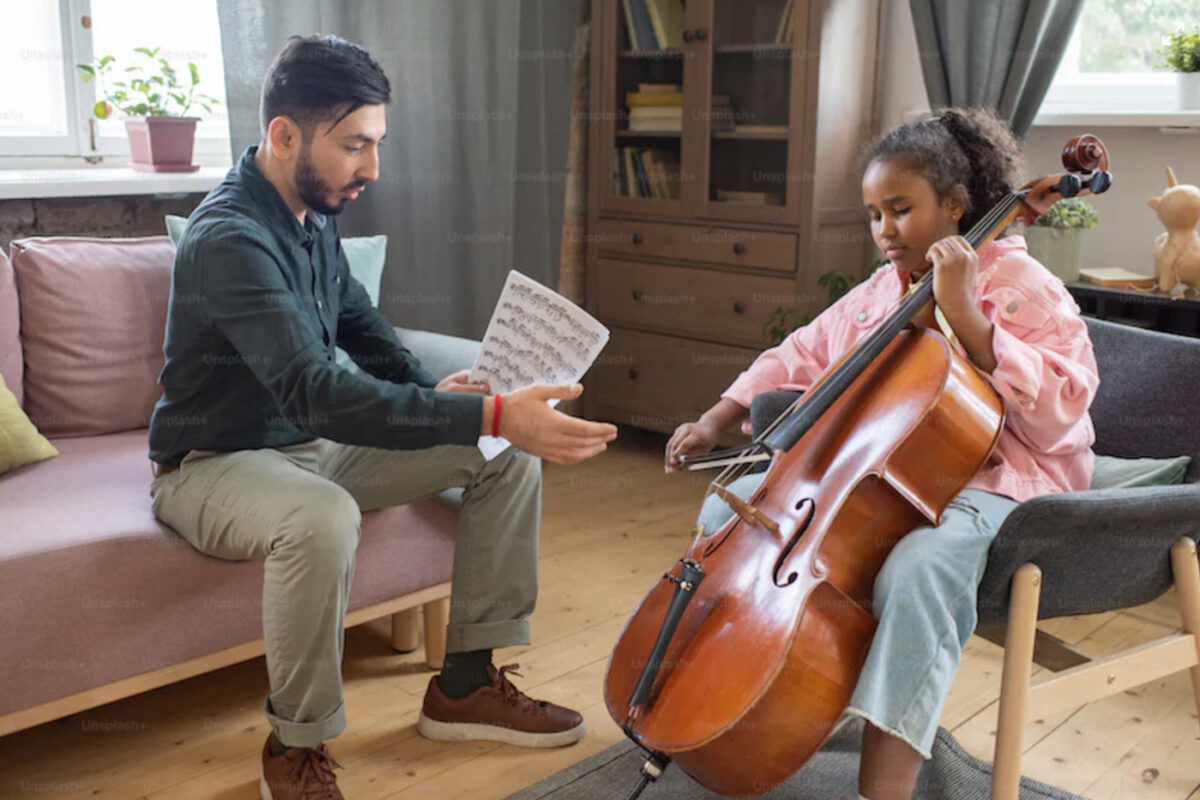
You can offer lessons online via Zoom or Skype, or in-person if you have a suitable space. And, with websites like TakeLessons or Lessonface that can help you get started and connect with new students, this could quickly become quite a profitable venture – as long as you have the patience for it!
7. Offer fan subscriptions
Creating a subscription model for exclusive content can also lead to consistent income. Websites like Patreon or Buy Me a Coffee make this super easy to manage. Just make sure you’re releasing great content consistently, otherwise you might start losing subscribers! But as long as you keep producing engaging content, this is a great way to make money with your music. Plus, it gives your most devoted fans an extra way to support you – and it has the potential to keep growing and growing!
8. Busk on the street
Busking, or street performing, is a totally legit way to make money with music. But, before you hit the streets, make sure you’re legally in the clear (some places require a permit…and yes, I learned this the hard way).

Once you’ve made sure you’re properly permitted, set up shop in high foot traffic areas – like near a popular coffee joint or a park entrance – and make your setup intriguing. A little visual flair can turn heads, and open wallets. And don’t forget that, even on the street, people may prefer to tip you via Venmo or PayPal, so print up a sign with your digital tip jar info.
It’s also helpful to invite some friends to come watch you busk. Humans tend to be interested in what other humans are already interested in. So, if you’ve got a small crowd enjoying your tunes, it’s likely gonna attract even more people to come check you out.
You can also record snippets of your street performances and share them on YouTube or social media so you can create a following that extends far beyond the sidewalk!
9. Be a ghost producer
Ghost producing (producing for other artists, but letting them take the credit in exchange for some compensation) is a pretty open secret in the music business. It’s definitely not for everyone, as most artists want to be recognized for their hard work and unique, artistic expression. But, if the glamor of the spotlight isn’t your jam (but you still want to make money from your music), ghost producing could be just the thing for you.
Platforms like SoundBetter or AirGigs are good spots to haunt, offering a marketplace to sell your production skills. And when it comes to pricing your phantom productions, stay competitive but don’t sell your talent short. Over time, as you build relationships in the industry, you might just find that the lack of fame is a fair trade for a full wallet and the freedom to create on your own terms.
10. Go on tour
Hitting the road for a tour isn’t just about that rush you get seeing a sea of faces bobbing to your tunes – it’s also a pretty solid way to fatten up your piggy bank. But, make sure you plan your tour smartly! Only perform in places where you have a decent enough following and keep an eye on your travel costs so that they don’t eat up all your earnings.

While you’re planning, getting a booking agent who knows the ropes can be a game changer. Here’s a guide on how to find a booking agent to help you land those gigs. And don’t just restrict yourself to ticket sales. Get creative! Host a post-show meet-and-greet for a small extra charge, or offer an online experience for those who can’t make it in person.
If you’re looking to make money from touring, you’re gonna have to be savvy with your funds, time, energy, and resources. But, making money from performing on the road can be just as thrilling as that moment the crowd roars when you step on stage.
11. Offer recording services
If you’ve got a decent home studio and want to make money from your music setup, you can always offer recording services to other musicians, podcasters, and even filmmakers. There are so many people out there who need quality sound recordings but don’t have the means to book time in an “established” studio.
If you’ve got a good setup (and a good grasp on recording), you can fill this gap. Trust me, I’ve recorded a number of vocalists in my walk-in closet. And it was always a win-win: they received a professional touch to their recordings and I was able to pay the rent!
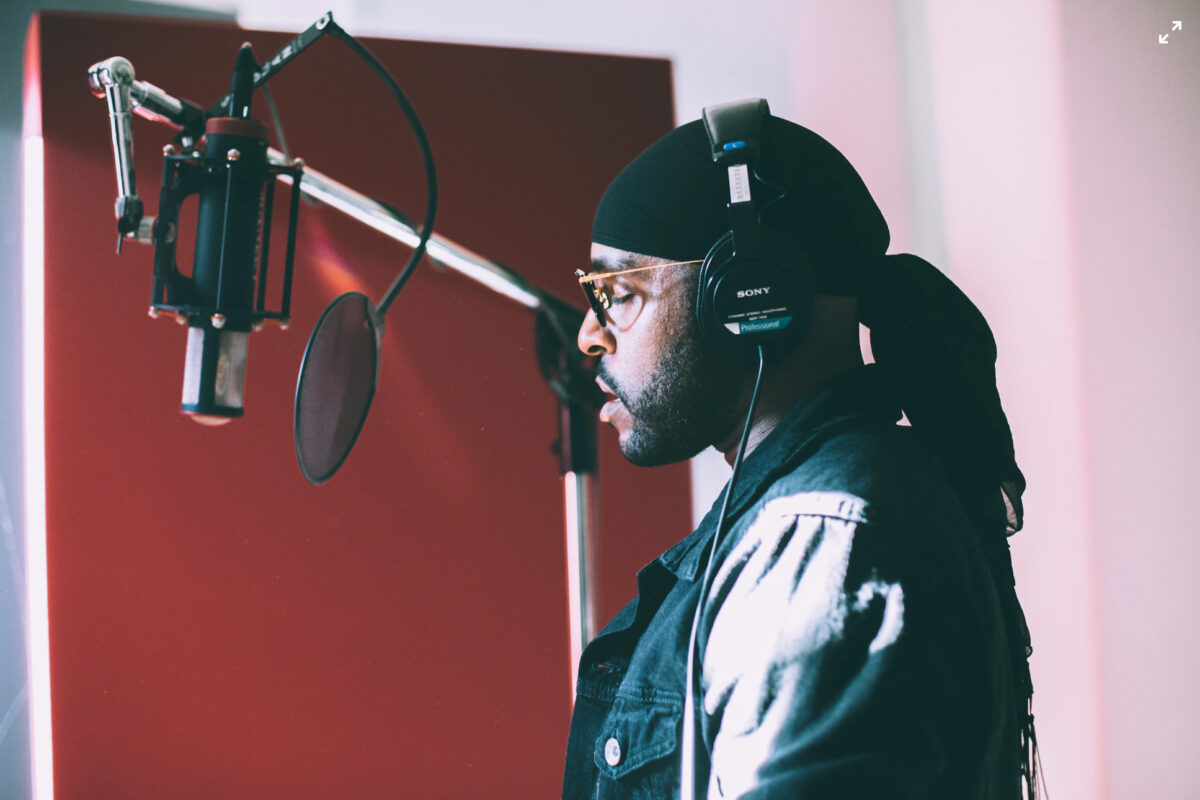
When I offered recording services in the past, I learned it was best to charge per hour, rather than by project (some projects just drag on and on – well past the scope of what you’re expecting). But by lending my recording skills, I also got the opportunity to network with other creatives. And since creatives tend to know other creatives, it provided built-in word of mouth marketing for me. Each new client I took good care of became, potentially, more work down the line.
I will note that most home studios are not perfectly acoustically treated. We all do the best we can, but sometimes there’s not much you can do when your neighbor’s mowing the lawn during a recording session with a client. For this reason, I highly recommend investing in audio repair software like iZotope RX to help remove any unwanted background noise or fix any audio issues (plosives, sibilance, mouth clicks, etc.) that you may catch after the client has already left.
12. Sell your beats
If you’re a music producer, you likely have tons of folders full of beats you aren’t planning on using. Why not sell them to people who would put ‘em to good use? Platforms like BeatStars or Airbit make it easy for other artists to browse and buy your beats. For more tips on this, check out this guide on how to sell your beats online.
13. Write songs for other musicians
One of my favorite ways to make money from music is to write songs for other musicians to sing. Some people have a great voice, but struggle with lyrics or composition. So, if you’re good at writing catchy hooks, go ahead and offer this service to other musicians!

Sites like Vocalizr can help line you up with vocalists who may need some top lines written, or Kompoz can help you find more collaborators, but make sure you always have a contract in place before you start writing a song for someone else. Whether you charge a flat fee, or negotiate a percentage of any royalties the song makes, writing songs for others can be really fun and rewarding.
14. Serve as a session musician
If your skills on an instrument are solid, being a session musician could be a perfect gig. How do music artists make money this way? They charge per recording session or even per song. Studios often need musicians for specific recordings, and if you can deliver them quality work, your services will be in high demand.
If you play an instrument well, start reaching out to local studios and letting them know that you’re available for hire. Make sure to specify which genres you’re most comfortable with and, chances are, if they come across a project that could use your talents, they will hit you up.
15. Write for music blogs
If you know a lot about music, why not share that knowledge? Music blogs often pay for articles from experts in the field, and writing for music blogs means you not only get to share your expertise, but you also get to make some extra money. Plus, it enhances your credibility and could attract other business opportunities or collaborations.
If you’ve got a lot of knowledge on a specific part of the music industry (and a strong knack for writing), reach out to the editors of different music blogs that you think would want to publish some of your work. It definitely helps if you send them some samples of your previous writings so they can get a good feel for your style and voice. If they like what they read, they may send you some assignments and put you to work.
16. Create and sell loop/sample packs
Creating loops and sample packs can be another form of passive income. Websites like Splice or Noiiz host these packs and offer you a percentage of the sales. Or, if you’re savvy enough to put together a Shopify page, you can cut out the middleman and sell digital downloads directly from your own website. Better yet, why not do both?
Bottom line: if you’re good at creating unique sounds and can get them in the headphones of people who would pay for them, this can be a consistent source of income – especially if your sound packs fill a popular niche.
17. Monetize your YouTube channel
YouTube is a viable platform for musicians to make money. Once your channel reaches a certain number of views and subscribers, you can start to monetize it through ads. Channel memberships also allow your viewers to join your channel through monthly payments and in return, get badges, emojis, and other perks.
So if you’re pondering how to make money with music online, definitely don’t overlook YouTube. It’s a platform with a broad audience and a wide range of ways to make your music pay.
18. Secure sync licensing
Sync licensing (lending your existing music for use in films, commercials, or TV shows), can earn you some substantial upfront fees, plus royalties in some cases. It’s a more complex field, requiring a good understanding of publishing rights and contracts, so make sure to do your research well. To start, take a look at this guide on music publishing.
19. Get corporate sponsors
If you can align your brand and music with a company’s image, a sponsorship could be a lucrative deal. Companies are always looking to partner with influencers or artists to reach a broader or more targeted audience. It’s another way music artists make money through non-traditional channels.
Consider reaching out to companies who you think you (and your music) would be a good fit to partner with and start connecting with them. This is an especially good strategy if you’re looking for funding for a top-notch music video or going on tour. It’s no coincidence that so many artists drink Bacardi in their music videos. If your music and personal story will resonate with a company’s target audience, you already have a foot in the door to getting a sponsorship.
20. Do a live stream
If you’re looking to make money from music online, live streaming can be a great avenue to explore. Platforms like Twitch allow for real-time donations during your streams, and some live streaming services even have a subscription model for regular viewers.
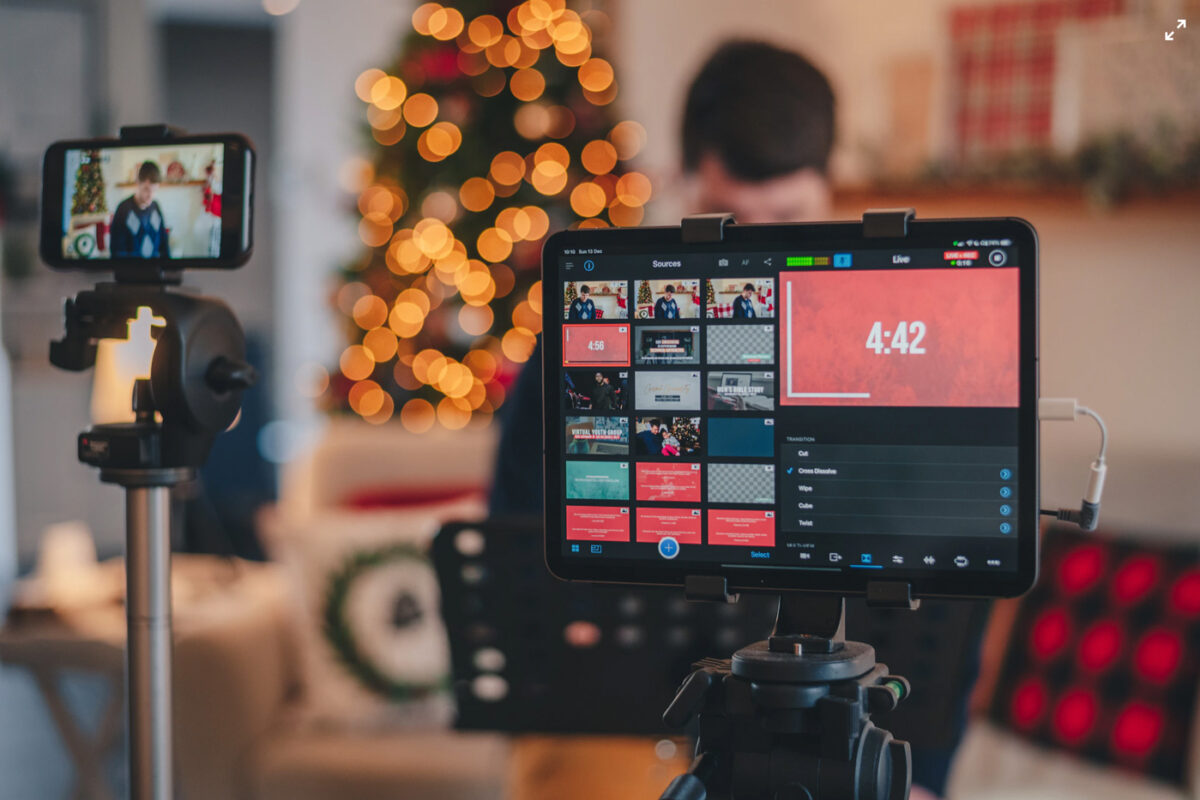
Whether you’re broadcasting a live acoustic performance, sharing a fresh DJ set, or just letting viewers watch while you’re producing in the studio, live streaming can help bring in some digital donations. For tips on setting this up, check out this how-to guide on live streaming.
21. Create soundtrack music
One of the most lucrative ways I’ve found to make money from music is to write custom soundtracks. Getting hired by a film studio to write some custom music for a TV show or movie typically pays pretty well. Not only can you charge for your time, you can normally also negotiate to get a cut of the royalties. So if the production ends up getting picked up by a major network or streaming platform, you’ll not only get your music heard by tons of people, you will also get a decent chunk of change on top of it!
When people think of soundtrack music, they typically just think of music made for movies and TV. But, nowadays there are so many other things you could write soundtracks for – video games, apps, VR experiences, and vlogging channels come to mind. But, as the world keeps demanding new and unique audio/visual experiences, that list will keep growing. So, if you have the audio skills, it pays to start connecting with the people who might need them.
If you want to get into soundtrack writing for film, put together a professional portfolio showing off your best work and send it to some film studios or YouTube creators you think could benefit from working with you. Or, if video games are more your thing, drop a line to some developers. Have a brainstorming session and then start making connections with people who might need custom music for their projects. And don’t be afraid to think outside the box.
For example, I once wrote some music for a company that manufactures pinball machine games. As long as there’s a need for custom audio, there’s an opportunity for you to make money there.
22. Sign a record deal
A record deal is often seen as the holy grail, but it comes with its complexities. We’ve all heard stories of record labels screwing over their artists and yet, despite knowing this, I’ve had my fair share of bad experiences with labels. My advice: always get legal advice to ensure you’re getting a fair deal.
But, once you’re signed to a label, they can offer resources like marketing and distribution that can be hard to achieve as an independent artist. And, depending on the label, they may even bankroll your entire next album (in exchange for a hefty cut, of course). But, funding your music and your life on their dollar is still a very viable way to make money with your music skills.
You can also learn how to start your own record label.
23. Curate playlists
If you have a serious ear for good music and a talent for finding fresh sounds, consider curating some playlists and passing them around to your friends, fans, and followers. Platforms like Spotify and Apple Music have become go-to places for music discovery. If you can compile a killer playlist in a specific vibe and promote it properly, that follower count will grow and you can eventually start to charge a bit of money to other artists for a place on your playlist.
Extra points if you can work your own tracks into the mix, because then you’re also boosting your own royalties!
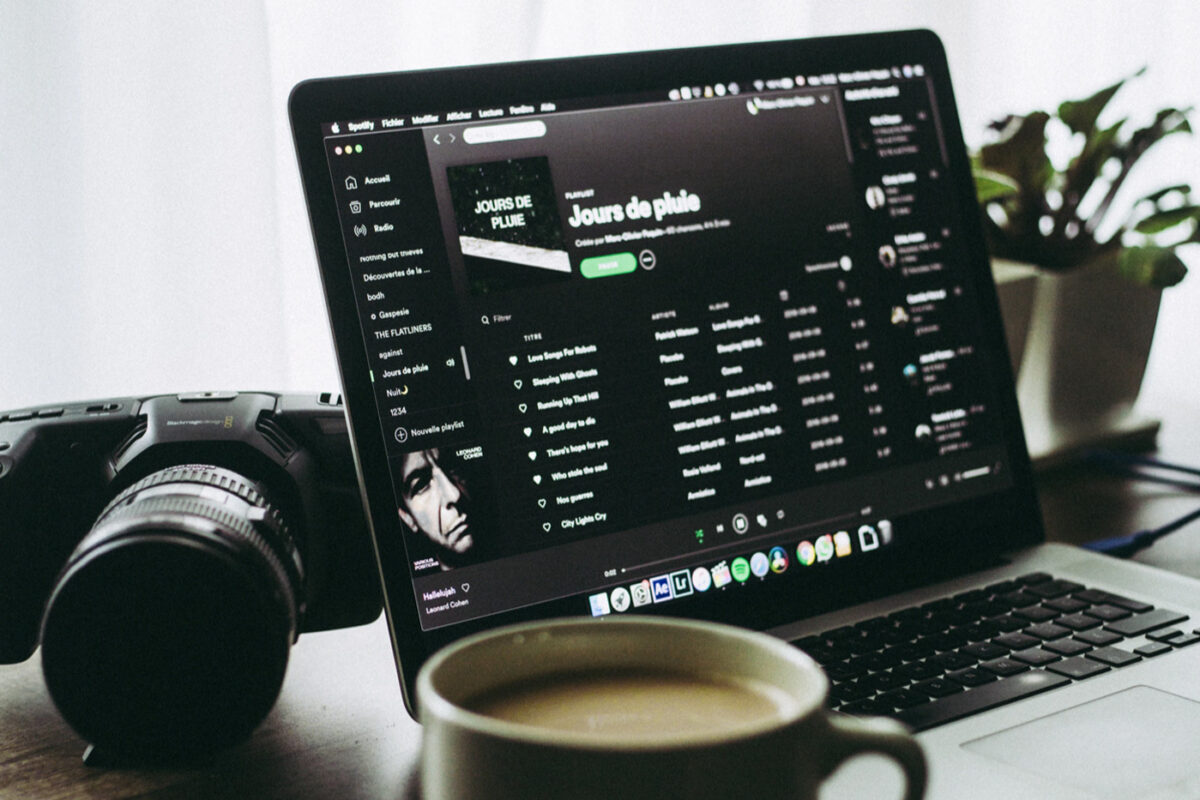
Another approach to playlist curation is to specifically create playlists for brands and companies. Where this does take a bit more strategy and networking, it does pay quite a bit more and could turn into a repeat gig. For example, if there’s a trendy clothing boutique in your town and you think you could put together the perfect soundtrack for their shop, let them know!
Offer to put together the first playlist for free – then charge a fee every time they’re ready to switch it up. If you can work it into a monthly deal, you’ve got yourself a good source of residual income!
24. Sell branded merchandise
Merchandise can be a serious income generator. So, design some tees, hats, posters, and whatever else your fanbase might want and start selling ‘em online and at your shows. Services like Teespring or Merch Camp can handle everything from production to shipping. But, make sure your merchandise reflects your brand and is high-quality. Cheap, poorly designed merch can do more harm than good.
25. Apply for music grants
Many public and private organizations offer music grants to support the arts. This could range from funds to create your next album, organize a tour, or even develop a music app. Some grants are genre-specific, while others are more general. The best part? This money usually doesn’t have to be paid back! So, if there’s a big music project you want to tackle, hunt the web for current music grants and take the time to write a compelling application. Sometimes this process can be pretty competitive, but the payout can make it all worth it!
Start making money with music
In a world where everyone loves to tell you how hard it is to be an artist, no one ever tells you how hard it is NOT to be one. I truly hope my tips help you find ways to support your craft so you can spend your time doing what you love. As you’ve seen, there are so many ways to make money with music, so there’s really no excuse to not follow your passion.
Now, get out there and start turning that passion into profits! You can even get a headstart with the free Komplete Start bundle, a collection of instruments, samples, and plugins that can help you create professional-sounding music.









